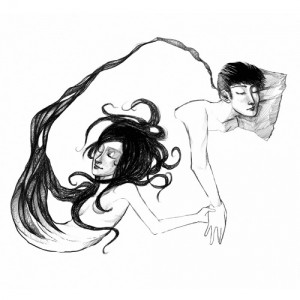You’ve just released the album of your life. The songs are honed to perfection, the production is top notch, and you found your true voice as an artist. How can you possibly top it with your next release? I suggest you don’t even try.
Instead, follow it up with leftovers. You may call them outtakes, b-sides, or even rejects. You can come right out and admit that it’s not your best stuff. Your fans will still want it, and some will delight in what they consider hidden gems.
This week I released Second Thoughts, a companion EP to my latest album, The Thought Chapter. It features the four original songs that didn’t make the album, plus six remixes of album tracks. Enough fans requested a physical release to justify a limited edition of 100 CD-R copies, signed and numbered in cardboard jackets. My graphic designer friend Todd LeMieux did the layout as a favor, and the discs in printed jackets cost $262 shipped from Disc Makers. More than half were sold as pre-orders at $10, and I suspect the remainder will sell in the next few months. The EP has taken in $100 in digital sales from my own mp3 store in three days, and will generate income for years on iTunes, Amazon, and the rest.
My first follow-up EP only came out on Tuesday, but I already consider it a success. Here are eight reasons to try it for yourself:
- A better album. The most important benefit is that it forces you to record more songs than you need for the album. Knowing you’ll have a few extras gives you the freedom to take chances, and relieves the psychological pressure to make every song a hit.
- Revive your album promotion. A follow-up can renew interest in your album just as the hype begins to fade. I waited five months after releasing my album, but your timing should coincide with a natural lull in your promotion. Depending on how far you want to take it, the follow-up could spawn a new series of blog posts, press releases, or even a tour!
- Show off the album in a new light. The follow-up pays homage to the album by demonstrating that you included only your best material. It invites fans to compare the songs that didn’t make it to the songs that did, which can spark discussion on forums and blog comments. Even if they disagree with your decisions, they gain a deeper appreciation of the songs. After all, not every album is worthy of a sequel!
- Stimulate sales of your back catalog. Whenever I release something new, sales of my back catalog pick up. In this case, a number of fans ordered the album and EP together. You might consider a combo offer for die-hards, like bundling the EP with a t-shirt.
- Fatten up your discography. Some fans want to own everything you produce. Every couple of months someone asks how to buy all my albums at once. In that case, bigger is better! Even if you’ve only got one album, the follow-up EP dodges the whole issue of the “sophomore slump” by making your second release deliberately subordinate to your first.
- Stay in touch with your fans. Before this album, I essentially disappeared for five years, while my mailing list declined from 1,200 to 500 subscribers. The follow-up EP shortens the perceived album release cycle and keeps you connected with your fans.
- Provide a better return on your investment. You’ve already spent the money to record the songs. You can get great remixes for free by running a contest at Acid Planet or Remix Comps. If you go digital only, you just have to pay for mastering (you might consider me for the job), and maybe graphic design, though you can get away with using a slight variation of the album cover.
- Expand your stylistic range. Though music sales are hard to come by these days, there is still money to be made licensing your music for film and television. My music falls between the cracks in genres, but now I’ve got legit club and trip hop mixes of my songs. If remixes aren’t your thing, you can release acoustic or even instrumental or a cappella versions.
I’m convinced that the follow-up EP has lots of benefits and few drawbacks. What do you think? Anything I’ve overlooked, pro or con? Let’s discuss it in the comments.
In a future post, I’ll reveal my plans to turn the follow-up concept on its head for my next release.
Brian Hazard is a recording artist with fifteen years of experience promoting his seven Color Theory albums. His Passive Promotion blog emphasizes “set it and forget it” methods of music promotion. Brian is also the head mastering engineer and owner of Resonance Mastering in Huntington Beach, California.
